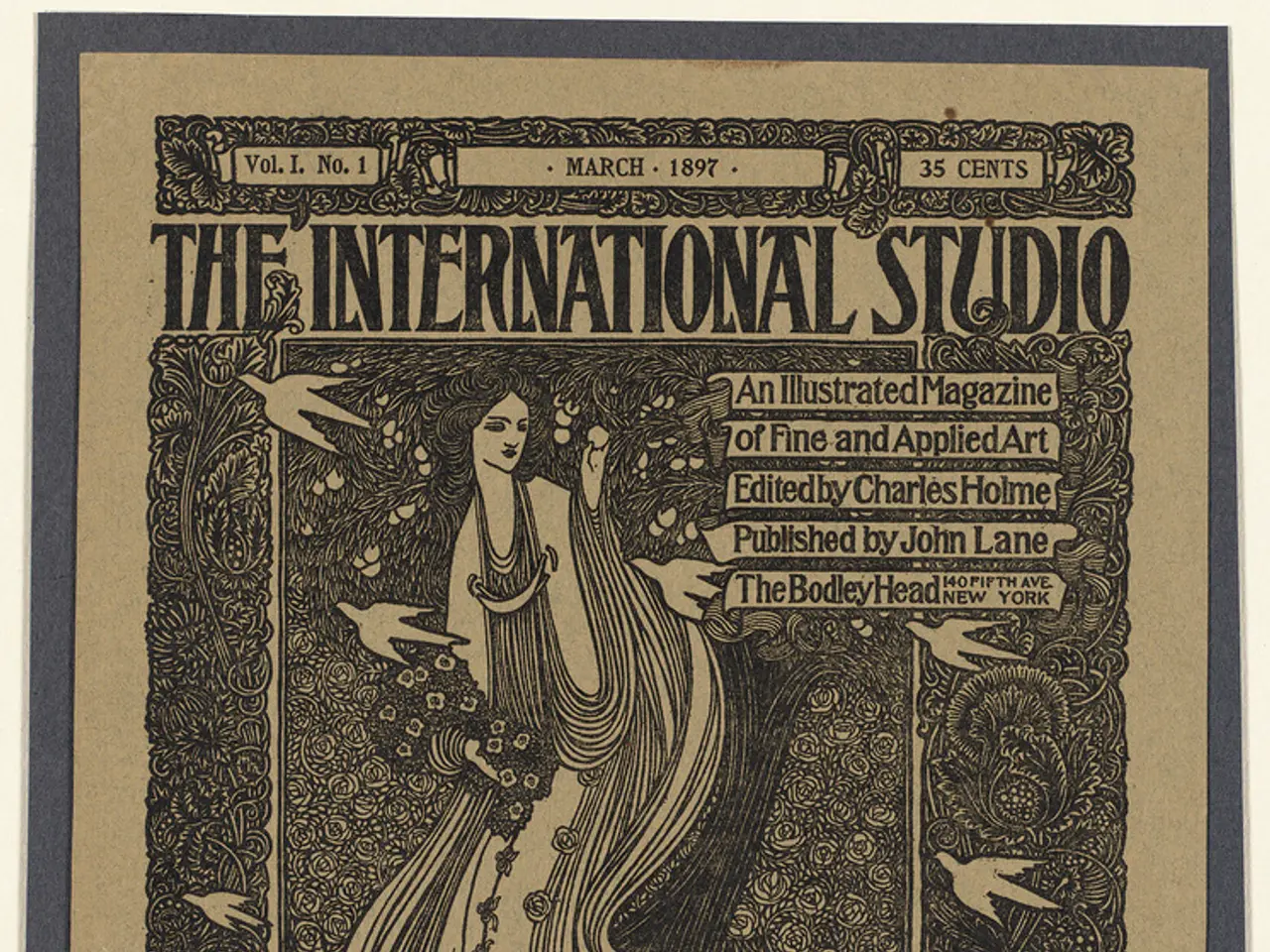Agnès Varda's Journey to Pioneering Feminist Film Making
Agnès Varda, born on May 30, 1928, in Brussels, Belgium, was a trailblazer in the world of cinema, particularly in the realm of feminist cinema. Her multicultural background and frequent relocations due to World War II exposed her to a variety of cultures and perspectives, which undoubtedly influenced her work.
Varda's education in art history at the Ecole du Louvre and later in photography at the Vaugirard School of Photography honed her visual storytelling skills. These skills were put to use in her most influential films, which significantly contributed to the feminist movement by centering women’s experiences, exploring female solidarity, reproductive rights, and existential questions about identity and autonomy.
Two of Varda's most notable works in this regard are One Sings, the Other Doesn't (1977) and Cléo from 5 to 7 (1962).
One Sings, the Other Doesn't is a landmark feminist drama that explicitly addresses women’s reproductive rights and friendship across different generations. It portrays female characters navigating pregnancy, abortion, and empowerment, highlighting themes of female agency and collective support. This film was pioneering in its open treatment of abortion and as a celebration of women's solidarity.
Cléo from 5 to 7 follows a young woman through a two-hour period as she awaits medical test results, examining the anxieties, objectification, and internal subjectivity of women. This film contributed to feminist cinema by portraying a female perspective and critiquing societal expectations of women’s beauty and fate.
Beyond these directly feminist works, Varda's films also explore themes related to social marginalization. The Gleaners and I (2000) and its follow-up The Gleaners and I: Two Years Later (2002) document people living on society’s fringes and challenge dominant capitalist and consumerist narratives. Though not explicitly feminist, these documentaries reflect Varda’s consistent humanist and feminist sensibility, emphasizing dignity and self-determination.
Other significant works of Varda, such as Daguérreotypes (1974-75), a documentary about a Parisian street and its inhabitants, capture quotidian life from a personal and immersive perspective, blending biography with social observation and showcasing a woman filmmaker’s gaze.
Varda's contributions to feminist cinema came from her innovative narrative style, focus on female subjectivity, and advocacy of women's rights and social justice. Her films opened space for complex representations of women and challenged patriarchal cinematic norms.
| Film Title | Year | Contribution to Feminist Cinema | |----------------------------------|-------|-----------------------------------------------------------| | One Sings, the Other Doesn't | 1977 | Explores reproductive rights, female solidarity, agency | | Cléo from 5 to 7 | 1962 | Portrays female subjectivity, critiques objectification | | The Gleaners and I | 2000 | Humanist feminist lens on marginalized people, dignity | | The Gleaners and I: Two Years Later | 2002 | Further exploration of social outsiders with feminist sensibility | | Daguérreotypes | 1974-75 | Personal documentary capturing community life through a female gaze |
These films remain influential in feminist cinema for their pioneering exploration of women’s lives, social realities, and the politics of representation. Varda's work emphasizes the importance of pushing the boundaries of traditional filmmaking techniques, often featuring strong, complex female characters. Her films highlight empowerment through art as a means for women to assert their independence and voice.
Varda's influence is evident in the diverse voices that have emerged in contemporary cinema, inspired by her fearless exploration of themes that were often marginalized. Her characters often confront and resist patriarchal norms, showcasing the resilience and strength of women. Varda demonstrated that cinema can be a powerful tool for social change, addressing issues of gender, identity, and societal norms.
In conclusion, Agnès Varda's groundbreaking work continues to inspire aspiring filmmakers, especially women, to tell their stories with authenticity and passion. Embracing one’s unique perspective, as Varda taught us, can lead to powerful storytelling.
Agnès Varda's multicultural background and frequent relocations due to World War II exposed her to a diverse range of cultures and perspectives, shaping her work significantly. Her education in art history and photography honed her visual storytelling skills, which she employed in her influential films that contributed to the feminist movement.
Two of Varda's most notable works include "One Sings, the Other Doesn't," a landmark feminist drama addressing women’s reproductive rights and friendship, and "Cléo from 5 to 7," a film exploring female subjectivity and societal expectations of women’s beauty and fate.
Beyond directly feminist works, Varda's films like "The Gleaners and I" and its sequel document people living on society’s fringes, challenging dominant capitalist and consumerist narratives. Though not explicitly feminist, these documentaries reflect her consistent humanist and feminist sensibility.
Other works such as "Daguérreotypes" capture quotidian life from a personal and immersive perspective, showcasing a woman filmmaker's gaze. Varda's contributions to feminist cinema arise from her innovative narrative style, focus on female subjectivity, and advocacy of women's rights and social justice.
These films remain influential in feminist cinema for their pioneering exploration of women’s lives, social realities, and the politics of representation. Varda's impact can be seen in contemporary cinema, inspiring filmmakers to push boundaries and tell stories with authenticity and passion.
Varda's work emphasizes the importance of embracing one’s unique perspective for powerful storytelling, often featuring strong, complex female characters who confront and resist patriarchal norms. Her films highlight empowerment through art as a means for women to assert their independence and voice.
Moreover, Varda's contributions extend beyond cinema, impacting other forms of entertainment, such as fashion-and-beauty, lifestyle, books, and even the burgeoning realm of animation. Her influence continues to inspire not just filmmakers, but also artists and creators across various genres, fostering a more inclusive and diverse entertainment industry.




